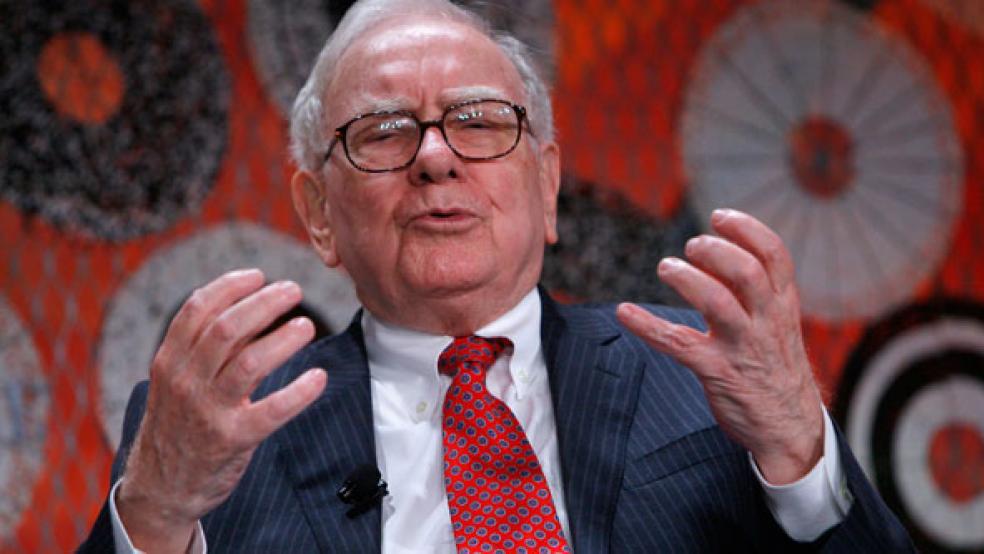President Obama is giving his populist assault on tax avoidance by wealthy individuals a new tagline. It’s not just fair, it’s a good way to create jobs, the White House’s top economic advisers said Monday.
The administration’s longstanding proposal to slap a minimum 30 percent tax rate on anyone who earns over $1 million a year will promote a more efficient tax code and spur economic growth, according to a new report released by the White House. Dubbed the Buffett tax after Warren Buffett famously complained it wasn’t fair that he paid a lower tax rate than his secretary, the measure will raise about $47 billion a year – sufficient to offset more than one-third of the two percent payroll tax break passed last year to stimulate spending by low- and middle-income wage earners.
Obama has made closing loopholes used by wealthy individuals a centerpiece of his tax plans since coming into office. It has earned him the enmity of many wealthy individuals, including a number of leading hedge fund managers on Wall Street who backed his 2008 run for office. Still, the president has included it in every budget and suggested it as a revenue raiser whenever must-pass economic stimulus measures are moving through Congress. It has yet to pass.
Now the administration appears to be tying the increase to the larger issues of tax reform to spur economic growth, which promises to lower overall rates in exchange for closing loopholes. High on that list would be the special treatment accorded capital gains and so-called carried interest for hedge fund managers, which allows income derived from buying and selling companies to be taxed at less than half the highest tax rate levied on ordinary income.
“It is a step in the direction of economic efficiency . . . if (wealthy individuals) focus on job creation and creating new products rather than structuring their income to avoid taxes,” said Alan Krueger, the chairman of the Council of Economic Advisers.
RELATED: Guess Who Wants to Kill Corporate Tax Reform?
The study’s claim came under immediate attack from conservative think tanks, which have long made the argument that preferential rates for wealthy individuals create jobs. Taxing capital gains as ordinary income “would mean investment would basically be choked off,” said Curtis Dubay, a Senior Policy Analyst at the Heritage Foundation. “Faced with the decision of consuming their income today or investing and paying a rate that’s triple what it is today—many investors will say it’s not worth it.”
Liberal and left-leaning think tanks dismiss such policies as failed trickle-down economics, and even many mainstream economists are dubious about the claims that lower taxes on the rich creates jobs. Moody Analytics’ chief economist Mark Zandi, in his analysis of government stimulus policy, found that tax breaks for the well-to-do are the least efficient form of economic stimulus, generating just 32 cents of economic activity for every tax dollar foregone by the government. By contrast, a dollar spent on aid to state and local government generates $1.37 in economic activity.
“There’s just not a lot of good evidence that suggests that you get big changes in investment patterns over time because of capital gains tax rates,” said Howard Gleckman, a senior fellow at the Urban Institute. “And thinking about what tax rate you’re going to pay when you sell your business is probably the last thing on the minds of most small business people.”
The administration in its report continued to sound the fairness theme as it prepares to run against the likely Republican nominee, former Gov. Mitt Romney of Massachusetts. His tax returns, released earlier this year, showed he paid less than 15 percent of his over $20 million income in taxes last year.
“The wealthiest 1‐in‐1,000 taxpayers pay barely a quarter of their income in Federal income and payroll taxes today—half of what they would have contributed in 1960,” the report said. “And the top 400 richest Americans — all making over $110 million — paid only 18 percent of their income in income taxes in 2008.”
Meanwhile, those squarely in the middle of the income distribution in the U.S., which includes households earning under $100,000 a year – have seen their overall tax rate go from 14 percent to 16 percent over the last half century. “No one who makes over $1 million a year should be paying less than the middle class,” said Jason Furman, deputy director of the National Economic Council.
The administration is also touting the Buffet rule as promoting fairness among the super rich. Among the small number of households in the U.S. earning over $100 million a year, effective tax rates vary from 12 percent to 32 percent, meaning some wouldn’t be affected by the new alternative minimum tax for the rich. “The Buffett rule is very much aimed at those who can structure their affairs in such a way to avoid taxes,” Furman said.





